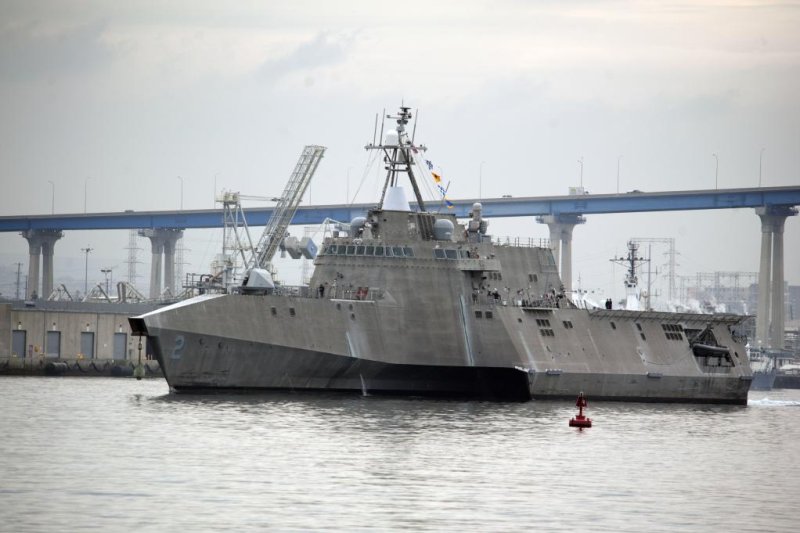The keel authentication for the USS Charleston, the next Independence variant littoral combat ship, was celebrated in an Austal USA ceremony Tuesday. It is the latest ship variant of the USS Independence LCS, shown here earlier this year. U.S. Navy photo by Senior Chief Mass Communication Specialist Donnie W. Ryan
MOBILE, Ala., June 29 (UPI) -- Austal USA celebrated the keel authentication of the future USS Charleston, the ninth Independence-variant littoral combat ship, at a ceremony in Mobile, Ala., Tuesday.
Built by an industry team lead by Austal, the Charleston will be about 421 feet long and feature a width of 104 feet, a Naval Sea Systems Command release said.
The LCS is a modular ship that can be equipped with surface warfare, mine countermeasure and anti-submarine warfare mission packages.
The ships feature the Independence variant, led by Austal, and the Freedom variant, led by Lockheed Martin.
The LCS program has been plagued by years of cost overruns and issues with design and survivability.
A plan was announced in 2014 to limit LCS production to 32 ships instead of the 52 originally planned.
Officials decided the gap would be filled with a multi-mission frigate. The LCS/frigate program was further winnowed to 40 vessels in December due to concerns about the sea service's balance between capability and quantity of platforms, the report states.
But while intended as a counter for the LCS issues, a GAO report released this month questions the frigate's future as well.
This month's GAO report is the latest in a long line of criticism against LCS, which was intended to be a highly mobile and modular surface vessel.
"Since 2005, we have raised many concerns about the Navy's acquisition of LCS, including its combat effectiveness and decreased expectations of its capability," the report notes. "Most recently, in December, 2015, we concluded that the lethality and survivability of LCS is still largely unproven, and that important questions remain about how LCS will operate and what capabilities it will provide the Navy."















